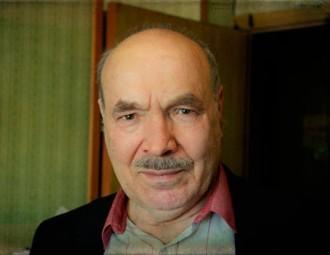Mikhail Kukabaka warns opposition against excessive euphoria about Ales Bialiatski’s release

Former Soviet dissident and political prisoner has written a letter to the Human Rights Center “Viasna”, congratulating Ales Bialiatski on his release from the prison.
Mikhail Kukabaka, Belarusian dissident and political prisoner of the Soviet times, having learned of the release of Ales Bialiatski from a report on the radio station “Echo of Moscow”, has written about it in a letter to the Human Rights Center “Viasna”.
“My sincere congratulations, Ales! I can also congratulate your entire team, who did their best to hasten the day,” HRC “Viasna” quotes the words of Mikhail Kukabaka.
Meanwhile, he says that he “would like to warn some opposition activists from excessive euphoria about this and malevolent remarks to the President,” referring to a need to secure the release of all other political prisoners who still remain behind bars.
Mikhail Kukabaka regards Ales Bialiatski’s release “as a manifestation of political expediency”. “Seeing the examples of the current processes that are taking place in Ukraine, Aliaksandr Lukashenka realizes how vulnerable the Belarusian statehood will be if it is faced with Putin. Although too late, but President realized that in case of Putin’s aggression the level of treason by the army and security services at times will exceed the current figures in Ukraine. And at the same time, Lukashenka clearly sees how sincerely Europe and the U.S. are fighting for Ukrainian sovereignty with both diplomatic means and financial support. It is possible that now President will actively seek rapprochement with Europe. And this process is needed to be promoted, for a while leaving behind personal ambitions and resentments,” he said.
Reference
Mikhail Kukabaka was released as a result of “Gorbachev’s amnesty”, becoming the last political prisoner in the Soviet Union, after he refused to write a petition for clemency. He now lives in Moscow, but closely follows the events in Belarus, responding to them by publications on the Internet. In April, Mikhail Kukabaka visited Minsk at the invitation of the HRC “Viasna”, and he had the opportunity to get acquainted with the activities of the leading Belarusian human rights organizations. One of the main topics in conversations with the former Soviet dissident was the issue of political prisoners in Belarus.
-
03.01
-
07.10
-
22.09
-
17.08
-
12.08
-
30.09








































